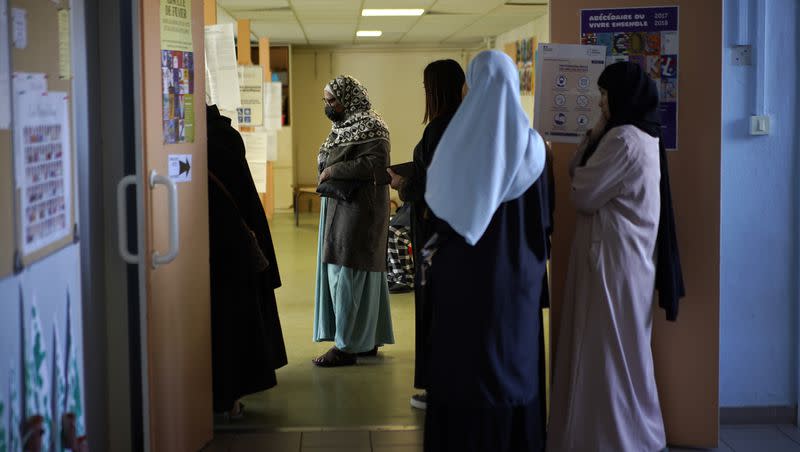France bans abayas in schools

On Sunday, the education minister of France, Gabriel Attal, said students would be prohibited from wearing abayas, the loosefitting, full-length robes worn by some Muslim women, to state-run schools when the new school year begins on Sept. 4.
“The school of the Republic was built around strong values. Secularism is one of them. … When you enter a classroom, you shouldn’t be able to identify the religion of pupils,” Attal said in an interview with French TV channel TF1.
France has enforced a strict ban on religious signs since 19th-century laws removed any traditional Catholic influence from public education, reports Reuters.
“Laïcité,” which does not have a direct English translation, but is often described as secularism, “guarantees freedom of conscience but also the neutrality of the state and of some public spaces,” writes The New York Times. Laïcité applies to numerous public institutions — public hospital employees, for instance, cannot wear religious clothing — and there is strong cultural aversion to public expressions of faith, but the focal point has traditionally been in schools.
In 2004, France banned religious symbols in schools, including headscarves, large crucifixes and Jewish kippahs, or yarmulkes. In 2010, it passed a ban on full face veils in public, angering some in its 5 million-strong Muslim community, reports the BBC.
Defending secularism has become a rallying cry in France that cuts across the political spectrum, from left-wingers upholding the liberal values of the Enlightenment to far-right voters seeking a bulwark against the growing role of Islam in French society, reports Reuters.
Related
However, the abaya ban was met with both applause and criticism. The union of school principals welcomed the decision, saying what it needed above all was clarity from the government, its national secretary, Didier Georges, told Reuters.
“What we wanted from ministers was: ‘yes or no?’” Georges said of the abaya. “We’re satisfied because a decision was made.”
But many on the left criticized the move, including Clementine Autain, an MP for the hard-left France Insoumise. “How far will the clothing police go?” she asked on X, the platform formerly known as Twitter. She said it was a move “characteristic of an obsessional rejection of Muslims.”
The abaya, typically associated with Muslim believers, falls into a gray area. While it is popular in the Gulf and in some Arab countries, it does not have a clear religious significance, reports The New York Times.
The French Council of the Muslim Faith rapidly condemned this decision, saying the abaya is not a religious garment but a form of fashion, writes Euronews.
Ismail Ferhat, a professor at the University of Paris-Nanterre who has studied laïcité in schools, said students often wore abayas against their parents’ will and noted that factors like social media fads or the teenage desire to challenge school authority also played a role.
The announcement is the first major policy decision by Attal, who was appointed France’s education minister by President Emmanuel Macron this summer at the age of 34, reports the BBC.
Holly Richardson is the editor of Utah Policy

